An Educational Encyclopedia of Islam Two Volume Set 3A & 3B (Updated Edition of Volume I & II), 1300 Pages
 Compare
Compare ₹6,750.00 ₹7,400.00
The publishers of ‘An Educational Encyclopedia of Islam’ may safely claim that this encyclopedia is the first of its kind in the literary world. In its presentation of the true historical picture of Islam, and in the lasting influence that it leaves on its readers, the encyclopedia is the perfect gift for friends, relatives and clients alike. In its essence, ‘An Educational Encyclopedia of Islam’ covers the religious dimensions of Islam and its development in various parts of the world. Cultural issues which are of significance within the historical canvass of Islam like calligraphy and language have also been made the subject of study. Entries on Muslim revivalists of the last century and earlier and their contribution to Islamic thought give the reader an idea of the historical context which the encyclopedia strives to place before him, all the while tracing developments from the life of the Prophet to the present day. It is not too surprising, therefore, that even subjects of contemporary interest generate a historical perspective. An Educational Encyclopedia of Islam seeks to contextualize contemporary Islam within Islam’s larger history. As such, it can easily serve as a standard reference source with its scholarly, yet highly readable, content.
Content and Authenticity
One particular quality of An Educational Encyclopedia of Islam is the almost palpable stress on authenticity of material used in its many hundred entries. Drawing upon trusted sources in the Arabic language, and translated into English, every sentence in the encyclopedia has been cross-checked for its correctness and authenticity. A proper list of references and bibliography cited at the end further enhances the value of the work. For a tad too long, the reference literature for Islam has remained the overly academic, multi-volume encyclopedia or several, very specialized, single-volume works with short definitions. In An Educational Encyclopedia of Islam there is now a reference work that provides the optimum mean in content quantity and quality. A scholarly work on Islamic cultures, religion, history, politics, and the like, the entries of this encyclopedia are arranged alphabetically and range from brief essays to major analyses of topics such as Hadith studies, pilgrimage, law, marriage, and the nature of divinity. Related entries cover areas of general interest such as social and political movements, women, Muslim minorities, human rights, and inter-religious affairs. Apart from the Prophet and the earliest Muslims, the encyclopedia also explores, in sufficient depth, the lives of prominent figures of modern Islamic history like Jamaluddin al-Afghani, Muhammad Iqbal, Syed Abul A’la Mawdudi, Maulana Muhammad Ilyas and Hassan al-Banna among many others. Several entries are well-supported with excellent illustrations and maps that supplement the data wonderfully as is especially seen in the interesting accounts of the life and achievements of the great Traditionists (Muhadditheen) of Islam like Imam Bukhari, Imam Muslim, Imam Abu Dawood, and Imam Tirmidhi as also the founders of the four schools of Islamic jurisprudence like Imam Abu Hanifah, Imam Shafi,’ Imam Malik bin Anas and Imam Ahmad bin Hanbal. An encyclopedia dedicated to the institutions, religion, politics, and culture of Muslim societies throughout the world, An Educational Encyclopedia of Islam places particular emphasis on the nineteenth and twentieth centuries, containing over a thousand articles in two volumes on Islam, Muslims and Muslim culture in the Arab mainland and in South and Southeast Asia, and Europe. In many ways a multidisciplinary effort, this work reflects a breadth and depth of scholarship not too common in Islamic studies today. It fills an important void in the field inasmuch as it does not shy away from such controversial issues as terrorism, holy war, human rights and the status of women. Its unique focus makes An Educational Encyclopedia of Islam an invaluable reference for scholars and students of not one, but many, disciplines, and media analysts, and anyone interested in increasing their understanding of Islamic history, culture and civilization. Having something of interest for everyone from the expert to the layman, An Educational Encyclopedia of Islam is, doubtless, an invaluable addition to personal, public and academic libraries.
Important points:
- The first encyclopedia of its kind in the literary world
- Covers the true historical picture of Islam
- Contextualizes contemporary Islam within Islam’s larger history
- Scholarly yet highly readable content
- Authentic material drawn from trusted sources
- Excellent illustrations and maps
- Invaluable reference for scholars, students, and anyone interested in Islamic history, culture, and civilization
Why you need this encyclopedia:
- If you are interested in learning more about Islam, this encyclopedia is an essential resource.
- It provides a comprehensive overview of Islamic history, culture, and civilization.
- The articles are written by scholars and experts, and they are based on authentic sources.
- The encyclopedia is also well-illustrated with maps and diagrams.
- Whether you are a student, a scholar, or a general reader, this encyclopedia is a valuable addition to your library
Based on 0 reviews
Only logged in customers who have purchased this product may leave a review.


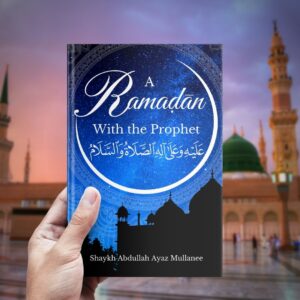
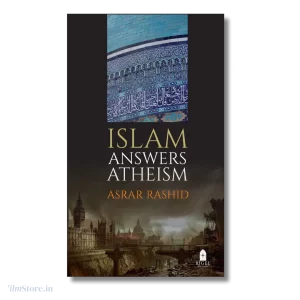
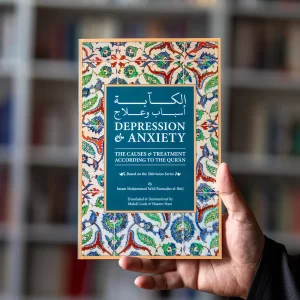
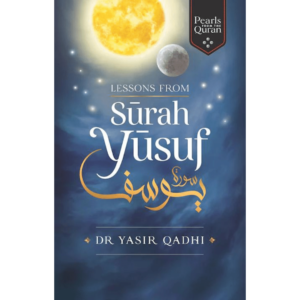
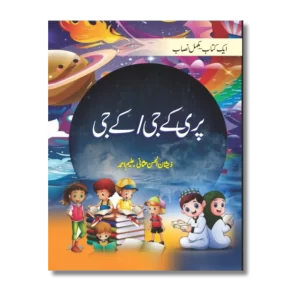
There are no reviews yet.